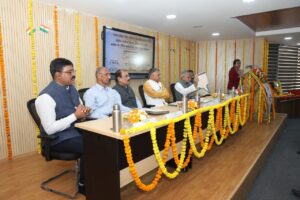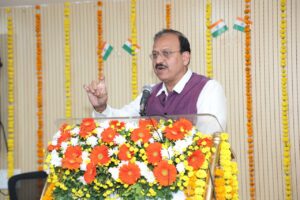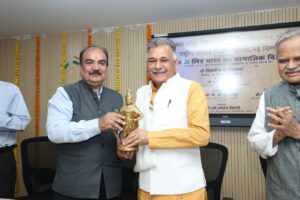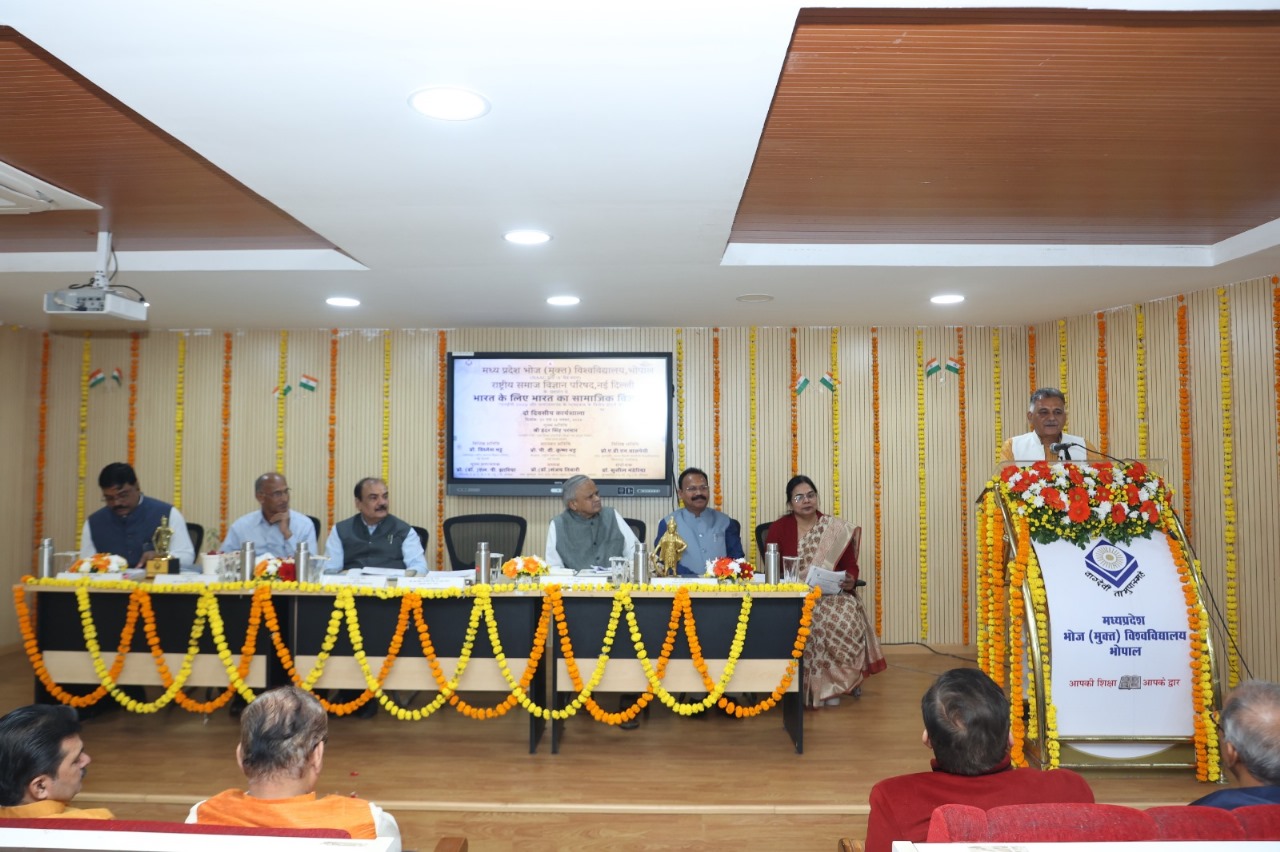CNN Central News & Network–ITDC India Epress/ITDC News Bhopal: A two-day national workshop on the theme “Social Science for India, by India” commenced at Madhya Pradesh Bhoj Open University. The workshop, organized in the context of the National Education Policy 2020, aims to strengthen Indian sociology through an indigenous perspective. The inaugural session was graced by Madhya Pradesh’s Higher Education Minister, Inder Singh Parmar, as the chief guest.
Chief Guest’s Address
In his address, Minister Parmar highlighted the exemplary social science skills demonstrated by Indian homemakers in kitchen management, calling it an outstanding example of traditional knowledge and resourcefulness. He emphasized, “India’s traditional knowledge and management skills are abundant, and we must study and research these practices with pride.” Parmar also noted that enriching India’s education system with its knowledge traditions is the primary goal of the National Education Policy 2020.

Insights from Guests of Honor
Dr. V.P. Krishna Bhatt, Patron of the National Social Science Council, New Delhi, noted, “Our sociology curricula have been influenced by Western ideologies. We need courses rooted in Indian social contexts.” He discussed the sociological insights hidden within Indian scriptures like the Gita and Ramayana.
Dr. Vighnesh Bhatt, Vice President of the National Social Science Council, stressed that “The origins of social science lie in India, and redefining it in the Indian context is essential.” He advocated integrating Indian knowledge traditions into school education to reconnect the younger generation with their roots
Key Contributions and Sessions
The workshop’s convenor and university registrar, Dr. Sushil Kumar Manderia, delivered the welcome address, explaining the significance and objectives of the program. He shared that approximately 80 participants from across the country had registered for the workshop in both online and offline modes.

Presiding over the program, Vice-Chancellor Sanjay Tiwari remarked, “The core purpose of Indian knowledge traditions is holistic development and values. We must adopt a spirit of collective welfare over individual gain in our lives.”
The inaugural session was followed by technical sessions, with the first chaired by Dr. Vighnesh Bhatt, where sociologists and academicians presented their insights.
Dr. Arti Srivastava highlighted the importance of introducing Indian knowledge traditions at the school level, while Dr. Sharda Garg emphasized connecting children to Indian culture and traditions from an early age.

Workshop’s Significance and Closing
The workshop, organized in collaboration with the National Social Science Council, New Delhi, aims to liberate Indian sociology from Western influences and adapt it to Indian contexts. Certificates will be awarded to participants upon conclusion. This two-day workshop represents a crucial step toward empowering Indian sociology and shaping a new direction for the education system through fresh perspectives and ideas.
#HigherEducation #BhojUniversity #NationalWorkshop #IndianSociology







